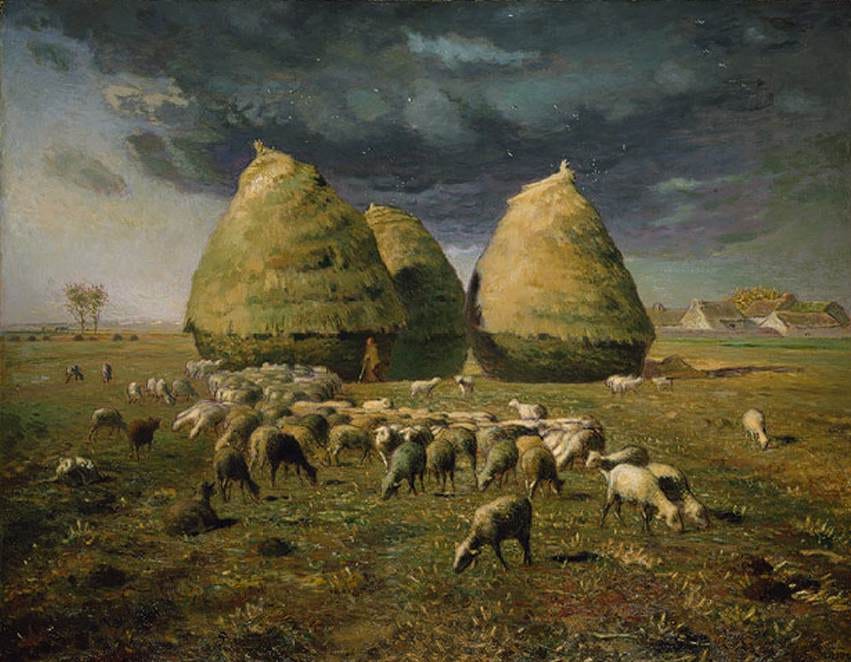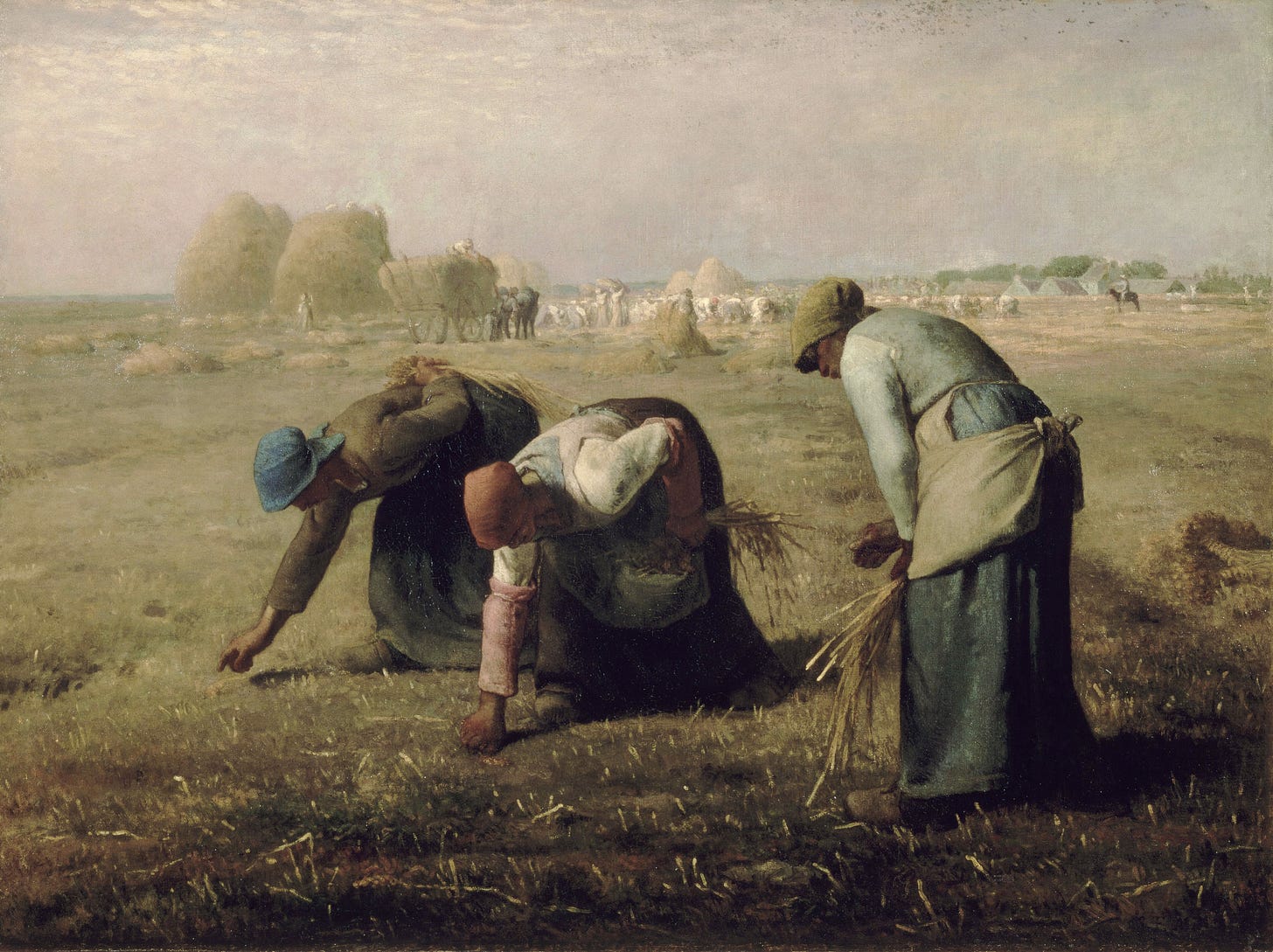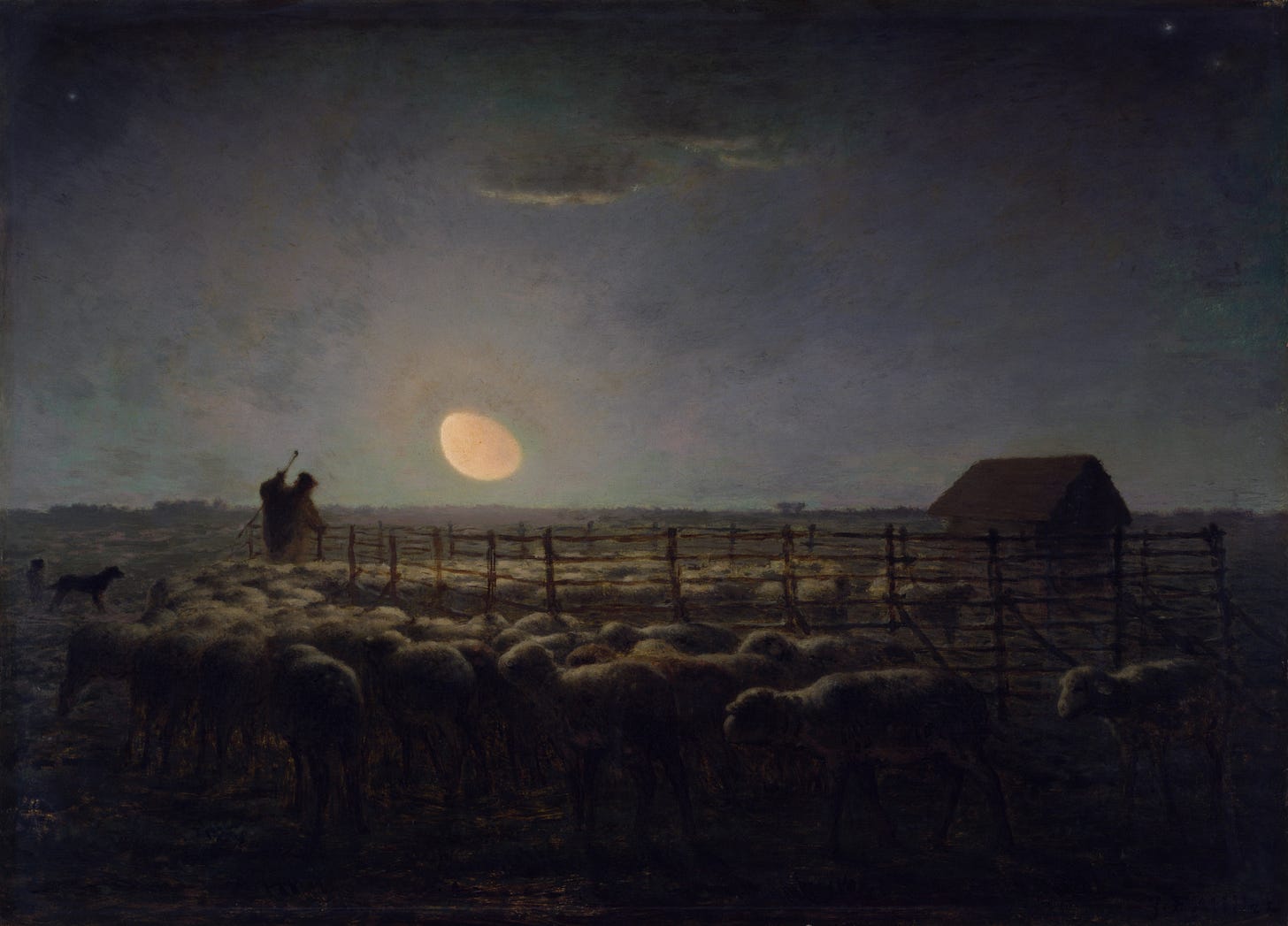the bucolic plague
she’s giving pastoral realism the way baby sucks fingers and sliced oranges from her hands. she’s giving rain boots with socks soaked inside. she’s giving rural poverty. she’s giving rent money cobwebs and eggs. she’s giving dust allergy. she’s giving untaxable income queen. she’s giving friends with the cleaning lady, women with cheeks flushed, baby suckling and crying and begging. she’s giving wet hair, stained teeth, sore throat, despair.
on a two-hour walk to keep baby asleep, I make a list in my head. aesthetic sub-genres of the pastoral: cottage-core, poverty-core, Rudy Jude, wood heat, Jean Francois Millet, homeopathy, GORP, Lapvona, the lumberjack olympics, Spring (season), Little House on the Prairie, Christianity, the seventies, upstate New York.
when we get home, I realize I am too close to the subject to critique it. I am surrounded by the pastoral—the babies, dogs, and chickens I claim as my friends. call it the bucolic plague: the desire for something quaint, a family and home-made butter, which contradicts the impulse for solitude, a loneliness that connects me to God, to myself, to writing. must it always come down to this, motherhood and writing, my body against the spiritual?
outside the dog is yodelling like a cartoon of a Swiss mountaineer, and I am reading inside by the fire. out the window, the stars are unbearably beautiful. am I still so stupid to think in these terms—beauty, the pastoral, the sublime—aesthetic categories deemed irrelevant by post-modern conditions? is my stupidity part of a biological drive? and am I an asshole for relishing in my childlessness?
process is the form, I read in a book about craft, which shatters everything I thought I knew. then Igor Stravinsky on the poetics of music: A real tradition is not the relic of a past that is irretrievably gone; it is a living force that animates and informs the present. Far from implying the repetition of what has been, tradition presupposes the reality of what endures. It appears as an heirloom, a heritage that one receives on condition of making it bear fruit before passing it on to one’s descendants.










